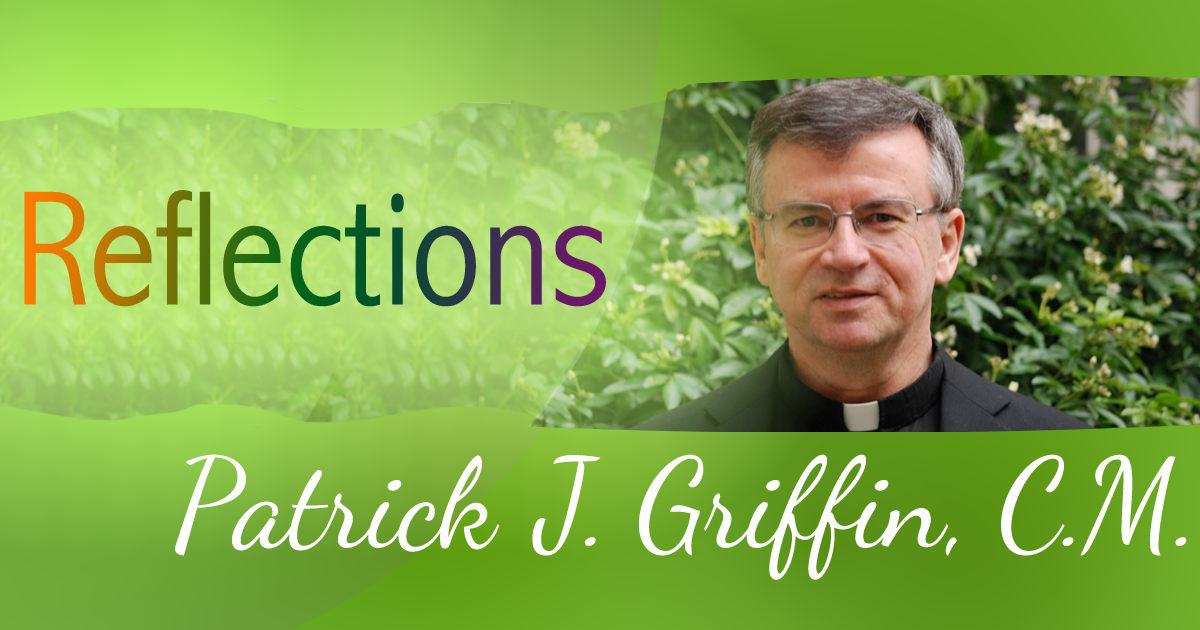A Vincentian View: Innocent
I have taught the Synoptic Gospels—Matthew, Mark, and Luke—many times. One of the helpful devices for coming to understand each of the Gospels involves studying the same story in each of them at the same time. The differences highlight a point or emphasis of a particular evangelist. Nowhere does that become more evident than in the study of the passion narratives.

In the liturgical cycle, this is the Year of Luke. On Palm/Passion Sunday, we hear his presentation of the passion and death of Jesus. One element that stands out uniquely in his telling of the story is the innocence of Jesus. Naturally, all the Gospels maintain the blamelessness of Jesus, but Luke puts this fact out there with particular vigor.
Note that Pilate says not once (23:4), not twice (23:14-15), but three times (23:22) that he finds no guilt in Jesus. The Roman Governor also reveals that Herod did not discover in the accused any crime worthy of the punishment proposed by the religious leadership (23:15). Thus, the Roman and Herodian courts maintain the righteousness of the Lord. When one of the thieves mocks the crucified Jesus, the “good” thief challenges his companion with the statement that “we have been condemned justly, for we are getting what we deserve for our deeds, but this man has done nothing wrong” (23:41). Finally, at the death of Jesus, the centurion at the cross proclaims, “Certainly this man was innocent” (23:47). Thus, Luke insists on the innocence of Jesus in multiple ways and in no uncertain terms.
As we reflect upon the meaning of the cross in this Holy Week, the third evangelist’s writing draws us to consider the suffering of the faultless in an emphatic way. Our world overflows with examples of the persecution of the innocent. The unborn can be denied the right to live. The young can be abused by those whom they should be able to trust. Children can be ignored by adults who find reasons to deny education, health care, and proper nourishment. The poor can be oppressed by the greed of the powerful who would deny fair wages, adequate housing, and safe environments. People of various religious, ethnic, and racial backgrounds can be regarded with suspicion and discrimination which deny them freedom, dignity, and inclusion. Bullies, tyrants and bigots take advantage of the weak, the marginalized, and the needy. The guiltless suffer every day and everywhere from the words, actions and policies of the guilty. The body of Jesus on the cross focuses our attention on the assault on those who can raise no defense and who can offer no resistance. His passion draws our attention to these brothers and sisters who are innocent of any wrong.
As we know, our stories and images often identify Vincent with the most innocent of his day, or any day, the abandoned children. This one group captured his attention, but plenty of others joined them. Vincent had a heart that opened wide to those who reached to him in their helplessness. He knew the meaning of the cross. During this Holy Week, we can ask for that same grace-filled insight.







Thanks for this. Opens my eyes…
Fr Griffin boy do you know how the poor are treated in ghettos i have great respect. For C.M community.
Thank you very much!